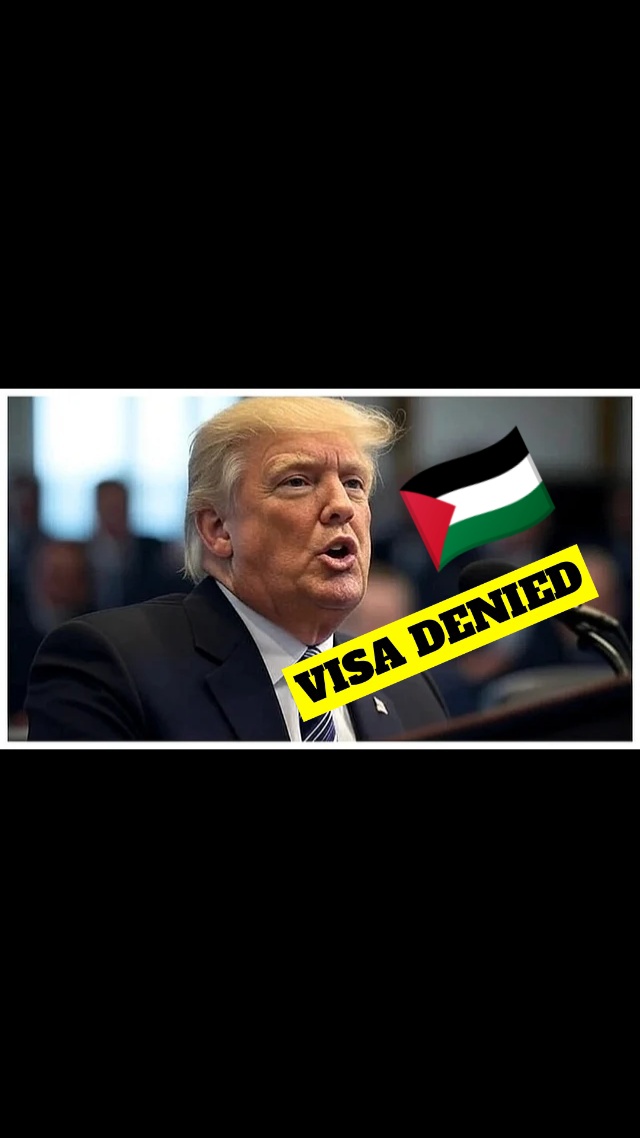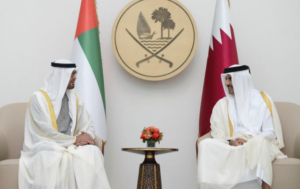Measures Target Both Palestinian Authority and PLO
The United States has announced new sanctions Palestinian leadership targeting the Palestinian Authority (PA) and the Palestine Liberation Organisation (PLO), escalating political tensions in the wake of increasing international recognition for Palestinian statehood.
The U.S. sanctions Palestinian leadership are directed at the PA, which governs parts of the West Bank and was formed under the Oslo Accords, as well as the PLO, which has long been recognised as the legitimate representative of the Palestinian people following the same peace process. As part of that recognition, the PLO had acknowledged the state of Israel and renounced the use of violence.
The U.S. State Department said it will implement visa restrictions against members of both the PLO and the PA. While not detailing specific individuals, the statement signaled a broad policy shift targeting key Palestinian institutions and their leadership.
Sanctions Seen as Response to UN Conference and Statehood Recognition
The timing and language of the U.S. announcement indicate that this move is likely a direct response from the Trump administration to a high-profile United Nations conference earlier this week. The conference, led by France and Saudi Arabia, was convened to gather international support for the two-state solution to the Israeli-Palestinian conflict.
During the event in New York, several key Western nations, including France, the United Kingdom, and Canada, voiced commitments to formally recognise an independent and demilitarised Palestinian state later this year. In some instances, that recognition is expected to be contingent on the fulfillment of certain conditions, though these have not yet been made public.
Washington had reportedly issued private warnings ahead of the conference, urging participating countries to avoid making what it termed “anti-Israel” declarations. The sanctions announcement appears to follow through on those diplomatic warnings, with the U.S. expressing strong disapproval of the outcomes of the conference.
U.S. Cites Longstanding Concerns Over Terrorism Support
In its public statement, the U.S. government pointed to a set of enduring grievances regarding the PA and PLO, which it accused of continuing to promote terrorism. These included allegations of incitement to violence—particularly through educational materials such as school textbooks—and the provision of financial compensation to individuals convicted of terrorism, as well as to the families of deceased attackers.
These concerns have often served as a basis for U.S. pressure on the PA, including funding freezes and other punitive measures over the years.
Palestinian Leadership Condemns Sanctions as Retaliation
A senior Palestinian political figure reacted sharply to the sanctions, describing them as an act of “revenge” by the U.S. in light of the growing international movement to formally recognise the State of Palestine. The unnamed official linked the timing of the announcement directly to the decisions made at the recent United Nations conference.
The Palestinian Authority also issued an official response on Thursday, echoing that sentiment. In a written statement, the PA said:
“These campaigns have been escalating in response to the significant and successive achievements of Palestinian diplomacy.”
The PA highlighted a number of recent developments it viewed as diplomatic victories, including the successful UN conference, the international momentum toward Palestinian state recognition, and what it called the “historic declaration” released during the gathering.
Growing Tensions Amid Shifting Global Stance
While the U.S. remains a staunch ally of Israel, the increasing pace of state recognition for Palestine marks a significant geopolitical development in the decades-long conflict. The sanctions are expected to raise further questions about Washington’s role as a mediator in the Israeli-Palestinian dispute, and whether the latest punitive measures will undermine prospects for renewed peace negotiations in the near future.









